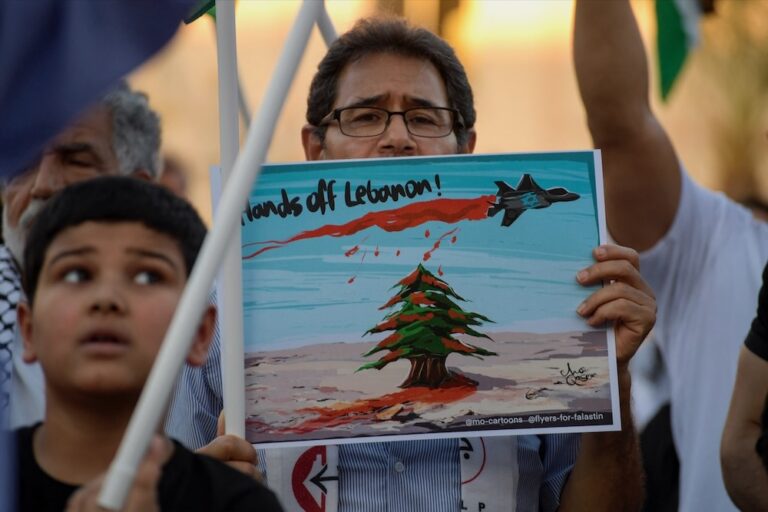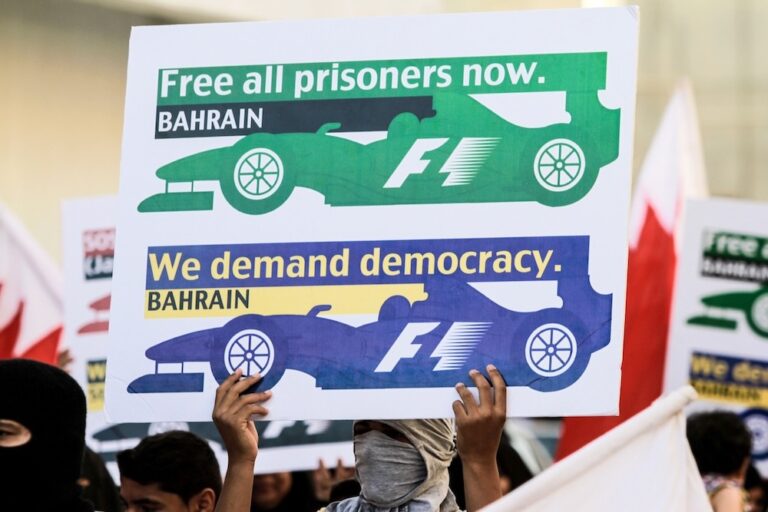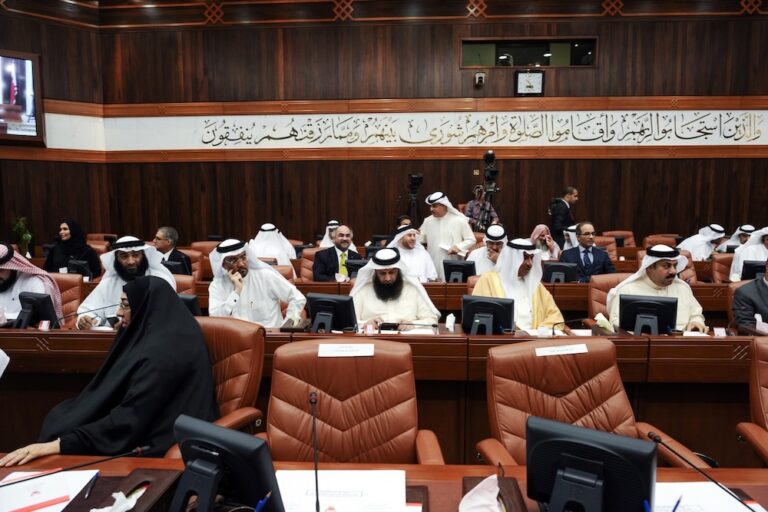BCHR expressed concern over the ongoing targeting of bloggers and social media networks.
(BCHR/IFEX) – 27 November 2010 – The Bahrain Center for Human Rights (BCHR) expresses concern over the blocking of websites and other forms of new media. Certain pages of social networking websites, such as Facebook, have been targeted. In the most recent example, the Information Affairs Authority blocked the page of the prominent political opposition leader AbdulWahab Hussain.
Since 9 October 2010, Facebook members who tried to access Hussain’s page were greeted with the now very common “This Website is Blocked” message. On his Facebook page, Hussain posts regular updates of his activities, the most notable of which was a sit-in demonstration in solidarity with those detained in August 2010. He also regularly expresses his political views and opinions on current affairs in Bahrain.
BCHR notes that in September, the Information Affairs Authority blocked the http://www.alostad.net site as part of a campaign which targeted several websites in a sweeping crackdown on freedom of opinion and expression.
It is worth noting that many Bahraini bloggers now feel obliged to use pseudonyms on local discussion forums. As a result of the blocking of their sites, some bloggers have transferred their activities to social media networks such as Facebook and Twitter in order to continue their electronic activism given the situation of extreme repression against all means of expression. Several pages within Facebook have been created for this purpose: for example, a page on political prisoners updates its members on the latest information regarding detainees in Bahrain; the “Freedom For Moh’d Saeed Al-Sahlawi” page is dedicated to providing the latest news on BCHR member Dr. Al-Sahlawi; “Stop Shooting Protesters in Bahrain” is a page condemning the use of shotguns against Bahraini citizens. Meanwhile, BCHR’s page has received a record number of visitors during this time.
This is not the first time that the Information Affairs Authority has blocked a page on a social network. Previously, the Twitter page of a human rights activist, who posted links and articles from various human rights organizations (including BCHR), was blocked. Her YouTube page was also blocked.
Amira Al Hussaini, a Bahraini blogger and the editor of Middle Eastern and North African affairs on the Global Voices website, expressed concern over the blocking of websites and the crackdown against Bahraini bloggers by stating, “Being outspoken has a price tag, not everybody is willing to do it (. . .) People have given up, there is a sense of failure, there is a depressed mood amongst bloggers.”
Meanwhile the authorities claim they only censor pornographic websites and those which incite violence and provoke sectarian tension. In reality, censorship is primarily aimed at suppressing so called “dissenting” voices and opinions or those that fight for human rights against the oppression endured by the people of Bahrain.
BCHR is gravely concerned over the way the government of Bahrain is dealing with the online community of activists and bloggers which is one of the most active communities in the region. Rather than encouraging these cadres and their energies, the authorities are working to suppress them and to block their sites or even to arrest them. BCHR believes that, in light of the accelerated evolution of technology, it has become difficult for governments to block all websites completely. However, by insisting on blocking sites, the government has strengthened its position in the blacklists of authoritarian and undemocratic countries. In fact, Reporters Without Borders has already included Bahrain in the “Countries under surveillance” category in its report “Enemies of the Internet”.
BCHR demands that the government:
– Lift the ban on all public sites which encourage cultural dialogue, social and human rights, as well as social and religious expression.
– Put an end to all actions restricting freedom of opinion and expression, or preventing the transmission of information.
– Fulfill its international commitments and respect all forms of freedom of expression which are a part of international covenants and treaties.
– Amend Press Law No. 47 of 2002 to ensure it is in line with international standards of human rights.


